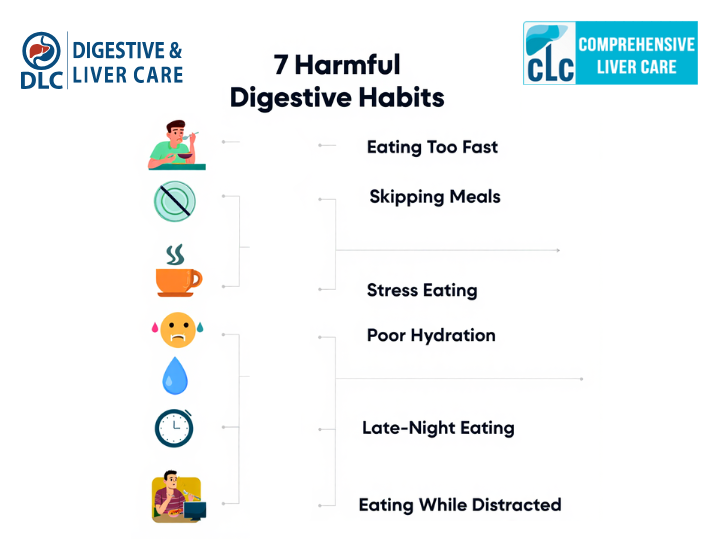Gut-Brain Connection: How Your Digestive System Affects Mental Health
- livercarecenter23
- Apr 30, 2025
- 3 min read
The link between the gut and the brain is far stronger than most people realize. Known as the gut-brain axis, this complex communication network connects your digestive system to your mental health. Emerging research in gastroenterology and neuroscience shows that what happens in your gut doesn’t stay in your gut—it can influence your mood, emotions, and even cognitive function.
Understanding the Gut-Brain Axis
Your digestive system is home to over 100 million nerve cells and houses nearly 70% of your immune system. The gut communicates with the brain through a two-way signaling pathway involving the vagus nerve, hormones, and the enteric nervous system. This bidirectional connection means that stress and anxiety can upset your stomach, and conversely, poor gut health can trigger mood disorders.
In gastroenterology, this connection is no longer viewed as anecdotal. It’s now a cornerstone of understanding how gastrointestinal health can impact mental wellbeing and vice versa.
The Role of the Microbiome
At the heart of this interaction lies the gut microbiome—a vast ecosystem of trillions of bacteria and microorganisms residing in the intestines. These microbes play a critical role in:
Regulating inflammation
Producing neurotransmitters such as serotonin and dopamine
Supporting the intestinal barrier
Influencing immune response
Up to 90% of serotonin, the “feel-good” chemical, is produced in the gut. Imbalances in gut flora (dysbiosis) have been linked to conditions such as depression, anxiety, and even neurodegenerative disorders like Parkinson’s disease.
Mental Health Disorders and Gut Health
Numerous clinical studies now suggest a strong correlation between gut health and mental health conditions:
Irritable Bowel Syndrome (IBS) often coexists with anxiety or depression.
Patients with inflammatory bowel disease (IBD) have higher rates of mood disorders.
Probiotics, often called “psychobiotics” when targeting mental health, have shown promise in improving mood and reducing anxiety.
Gastroenterologists are increasingly collaborating with mental health professionals to provide integrated care that addresses both physical and emotional symptoms.
How Stress Disrupts Digestive Function
When you experience chronic stress, your body enters a state of fight-or-flight. This response:
Slows down digestion
Alter gut motility
Increases gut permeability (leaky gut)
Disrupts the balance of gut bacteria
These changes can lead to bloating, abdominal pain, and fluctuations in appetite. More importantly, they can create a feedback loop, where digestive symptoms intensify mental distress, and mental distress worsens gut function.
Nutritional Psychiatry and Gut-Focused Therapies
A growing branch of medicine called nutritional psychiatry emphasizes the importance of diet in supporting mental health. Some key strategies include:
Probiotics and prebiotics to balance gut flora
A high-fiber diet to feed beneficial bacteria
Omega-3 fatty acids to reduce inflammation
Fermented foods like kefir, kimchi, and yogurt
Reducing sugar and processed foods that fuel harmful microbes
Gastroenterology clinics are now adopting these protocols to help patients manage chronic gut conditions with a holistic, gut-brain-focused approach.
Lifestyle Tips to Support the Gut-Brain Axis
To optimize both digestive and mental health, consider the following science-backed strategies:
Mindful eating: Slows digestion and reduces gut stress
Regular physical activity: Enhances microbiome diversity
Quality sleep: Helps regulate the circadian rhythm of gut bacteria
Stress reduction techniques: Yoga, meditation, or deep breathing can calm both the gut and mind
Avoid unnecessary antibiotics: These can wipe out beneficial microbes
Final Thoughts
Your gut and brain are in constant conversation. When your digestive system is out of balance, your mental health often pays the price. Likewise, emotional stress can disrupt your gastrointestinal function. By understanding the gut-brain axis, maintaining a healthy microbiome, and seeking expert care from gastroenterology professionals, you can support both your mind and body in more powerful ways than you might have imagined.



Comments